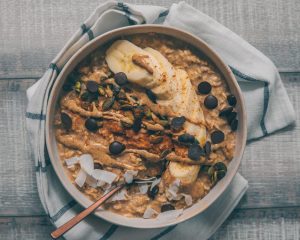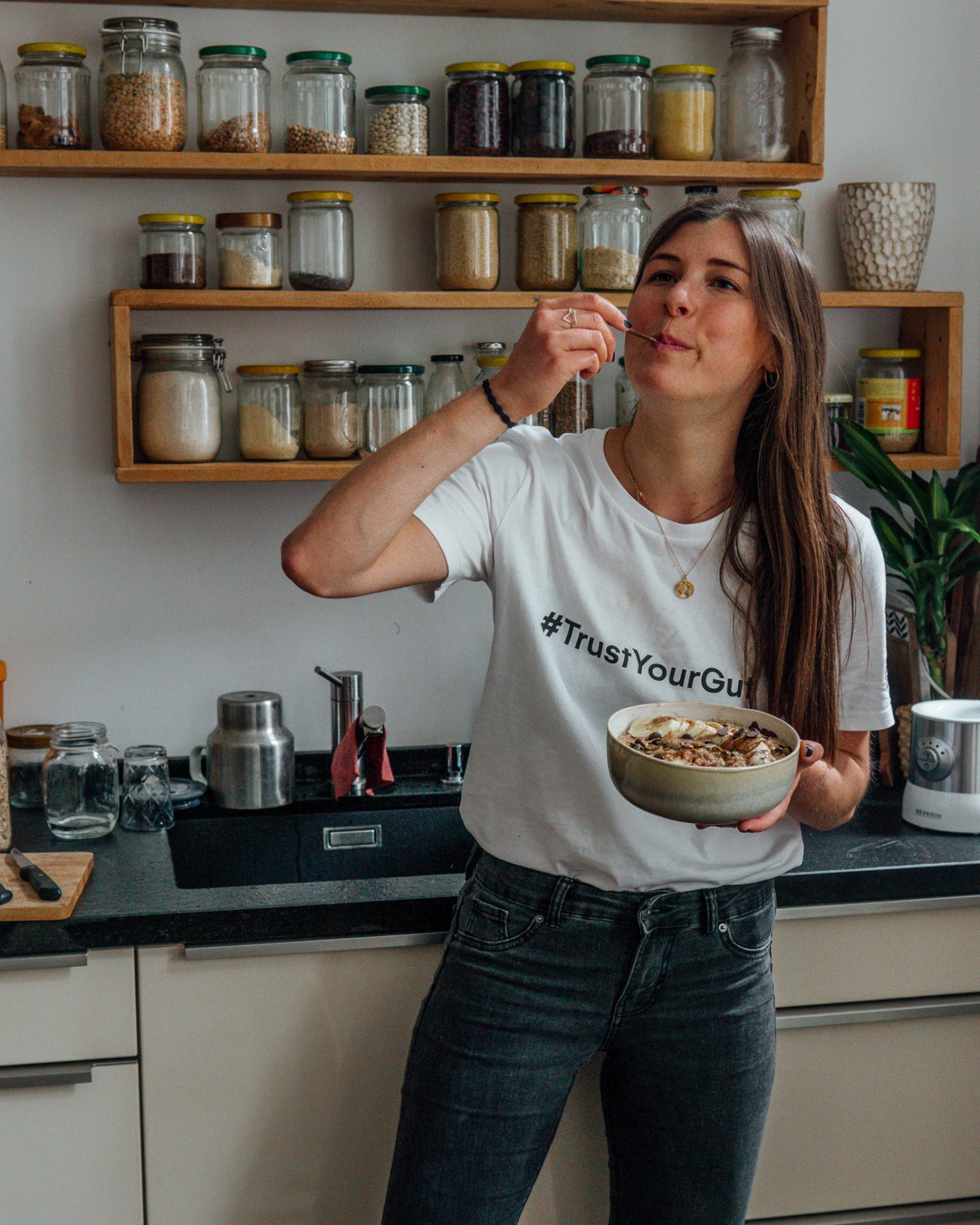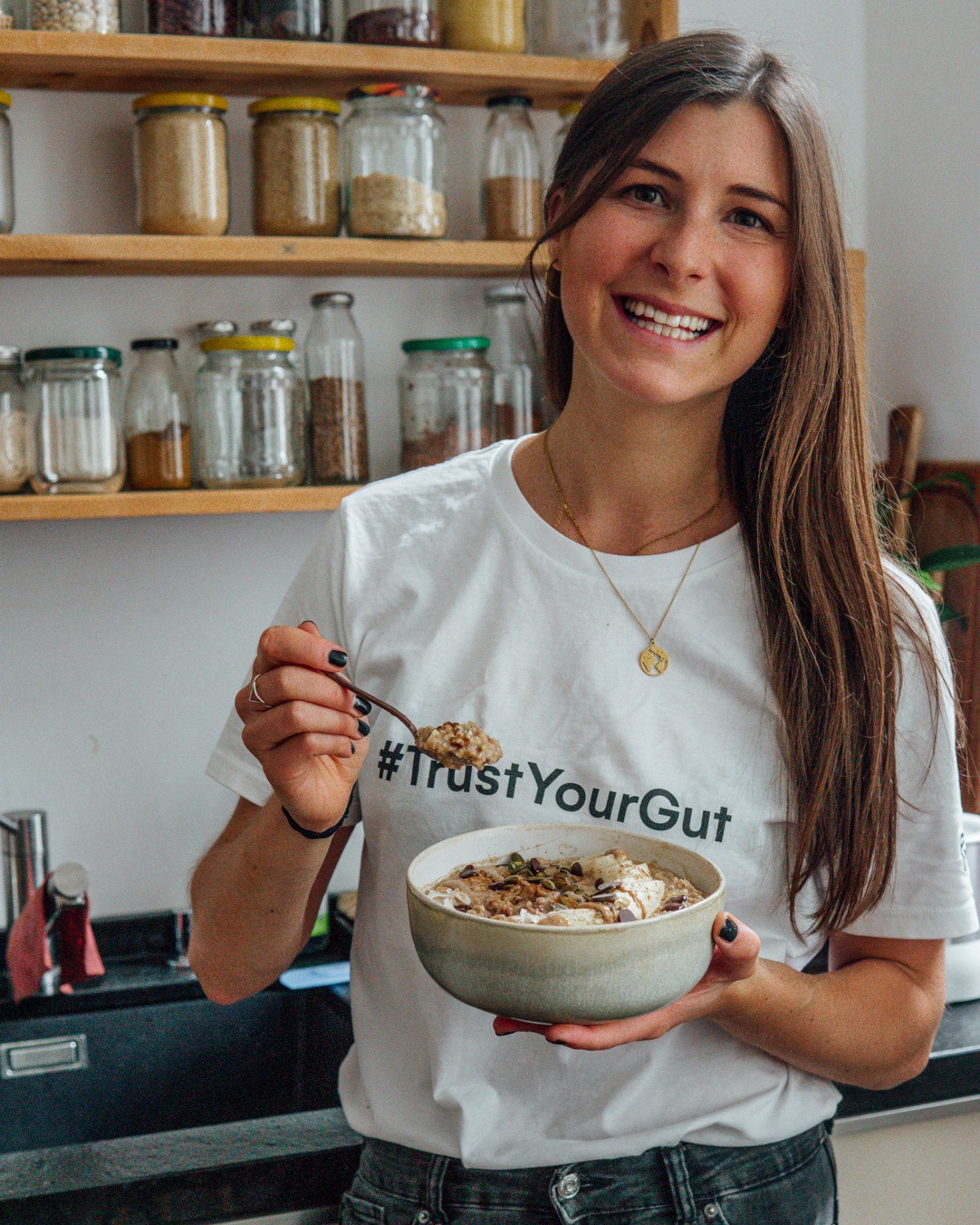In my previous blog posts, I have already reported that in order to support my regular cycle, I now also want to have breakfast regularly and thus lower (rather than increase) my cortisol. Even though my cortisol levels are perfect according to the endocrinological test, like all my hormone levels, by the way, I still want to do everything in my knowledge that could support my cycle. If you are wondering why, why, why, you will certainly find some answers here.

WHERE DID THIS CORTISOL COME FROM ANYWAY?
Our body is full of small miracles, it also houses the adrenal cortex, a mini gland that belongs to our kidneys. Despite its small size, it has a real knack for producing messenger substances. This gland also produces cortisol, the stress hormone. When and how many hormones this small gland produces, it decides, among other things, after being asked to do so by a gland in the brain, the pituitary gland, which in turn follows decisions from the brain, the hypothalamus. It is very complicated who actually influences whom, but in the end, our brain and the activity of our nervous system play a decisive role.
WHAT DOES THIS CORTISOL DO ANYWAY?
For me, this messenger is a disaster relief worker. Because it allows us to function even in extreme situations. It focuses everything on a “fight” with the outside. To give a few examples: Cortisol calms our inner battles, the defense cells – the allergy sufferers among us probably know the effect of creams containing cortisone*. Then it also mixes in our fluid and mineral balance. After all, its task is to provide available energy in every situation in life.
WHY DOES A MESSENGER SUBSTANCE PROVIDE ENERGY – DOES IT NOT MAKE MY FOOD?
In principle, energy comes from food. But in the case of food is not within reach, our body has built up reserves. With the help of insulin, the antagonist of cortisol, muscle mass is built up in “good” times and fat is stored, among other things. And this is exactly where cortisol comes into play: as a disaster relief agent, it causes all fat and muscle reserves to be mobilized. So, if we want to be active without having energy available at the moment, cortisol makes exactly that possible by breaking them down.
OK… BUT WHAT’S THE PROBLEM NOW?
The focus on the outside and the alertness influence our inside in countless ways. The messenger substances in our body are in a sensitive balance that adapts to all situations. In alarm situations, when our bodies produce a lot of cortisol, other things, such as reproduction, usually have low priority for our bodies. In particular, our sensitive cycle can quickly become unbalanced.
SO HOW CAN I LOWER MY CORTISOL?
Overall, it is certainly helpful to reduce stress. For example, I try to create calm moments regularly through my daily routine. Among other things, my cocoa ceremony grounds me very much. Cocoa is rich in antioxidants and magnesium, which can have a relaxing effect, and you can listen to the episode “How do you find your personal wellness routine” in my podcast.
Yoga and meditation are also a fantastic way to reduce stress and lower cortisol. Studies show that even music can lower cortisol levels. A massage also promotes our happiness hormone, serotonin, and lowers our cortisol levels at the same time. You don’t have to tell me that twice 🙂

Now I also want to integrate regular breakfast into my everyday life. Because even long meal breaks can cause our body to run out of energy and increase our cortisol, which takes care of the problem. I will regularly use oatmeal because it supports the body’s own serotonin production, i.e. it strengthens our feeling of happiness and keeps stress low. It is also scientifically proven that cortisol reduces the effects of foods that are high in protein and fat (e.g. soya and legumes) and tryptophane-containing foods (e.g. cocoa). Antioxidants (e.g. in berries) and some teas such as green, black and oolong also lower stress levels.
*Cortisone and cortisol are very similar substances: both are steroids and they differ only in 1 functional group.
I would like to emphasize here that we are all individual and unique. What works for me may not be right for you. Nevertheless, you are welcome to try my ways and I am also very happy to hear about the things that help you.
love, Annelina



Leave a Reply